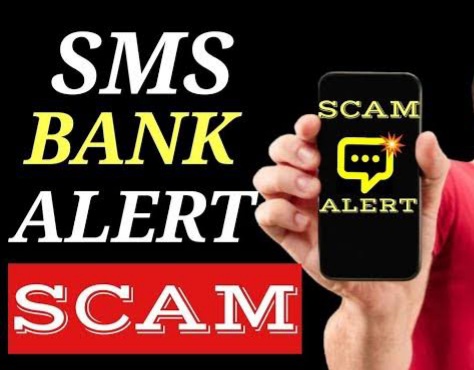Security
5 Common Bank Scamming Strategies Fraudsters Use And Ways To Avoid Them

Fraudsters frequently use bank schemes to get people’s financial and personal information.
They utilize a variety of techniques to deceive their victims into disclosing private information such as passwords and bank account details.
EDITOR’S PICKS
-
5 Foods That Can Reduce Anxiety Instantly
-
3 Warning Signs Of Diabetes You Must Never Overlook
-
5 Bad Signs You Are Not Eating Enough Food
In this article on EKO HOT BLOG, we will be looking at some of these common scamming strategies and how you can avoid them.
1. Overpayment scams
If you sell goods or provide services online, you may become a victim of an overpayment scam. Overpayment fraud usually starts with someone sending you a fake cheque for more money than they intend to pay for the item. After that, they will ask you to deposit the funds in a bank and send them the extra. Sadly, because the check was invalid, you will end up paying real money for the difference of an overpayment that was fake.
2. Check-Cashing Scam
This scam aims to take advantage of other people’s kindness and generosity. This occurs when you are approached by a person outside of a bank who will ask you to help cash their cheque. They can say that they need the money but don’t have an account at the specific bank. This method is intended to let you deposit the check and withdraw money from your account to pay the person. The funds are held against your account when a check doesn’t clear because it was an invalid one.
3. Fake lottery scam
The way this scam operates is that victims get a call or email telling them they’ve won something or are eligible for a special deal. With the promise of crediting your account, the intention is to persuade you into sending your private bank information. Your bank information is put on a demand draft, which is processed similarly to a check but doesn’t call for a signature after the fraudster gets it. Your bank will send funds from your account to the fraudster once they receive the draft.
4. Phishing Scams
Phishing is a scam where scammers use text messages and emails to get people to disclose personal information such as account numbers, ATM numbers, transaction passwords, and more. Their objective is to gain access to your accounts, including your email, bank, and other financial accounts. Phishing scams frequently demand that you click on a link and take an action, such as confirming personal information, so they can have access to steal your money.
5. Government Imposter Scams
Pretending to be a government representative is another frequent bank scam. You get a call from the fraudster claiming you’ve won something, but you need to pay taxes or other fees so they can process it.
FURTHER READING
-
3 Warning Signs Of Diabetes You Must Never Overlook
-
Must Read: 5 Dangerous Signs That Indicate Your Body Is Unhealthy
-
Revealed: How To Get Back Your Money From Scammers (6 Easy Steps)
If you don’t pay what they claim to be an unpaid debt, they may threaten to put you in prison. The truth is that no government agency will ever call you and request payment of any kind.
Click to watch our video of the week
Advertise or Publish a Story on EkoHot Blog:
Kindly contact us at ekohotblog@gmail.com. Breaking stories should be sent to the above email and substantiated with pictorial evidence.
Citizen journalists will receive a token as data incentive.
Call or Whatsapp: 0803 561 7233, 0703 414 5611















